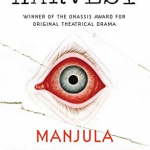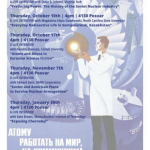Past Events

- William Pitt Union and O'Hara Center

- 2400 Sennott Square
With each global health crisis, the interconnectedness of populations around the globe becomes more pronounced. Diseases not only affect the health of communities, but they have a profound impact on political, economic, and social stability within countries and regions. This course engages the interdisciplinary nature of global health by approaching the issue through the lens of the Sustainable Development Goals (SDG) developed by the United Nations. The SDGs range in focus from good health and well-being to gender equality to clean water and sanitation to affordable, clean energy. By engaging the ways that health has a stake in these goals, the course will bring the expertise of faculty from the University of Pittsburgh and CMU as well as practitioners to understand and address the issue surrounding global health from a myriad of perspectives and avenues. With an applied focus, the course will assist students in engaging and advocating for a community on a global health issue through a policy memo. This iteration of the course will examine gender equality and SDG #5.

- 4130 Wesley W. Posvar Hall
Seeking a career that you will enjoy? Want to leverage your talents to land that future job in international affairs, government, nonprofit, or business? Attend the StrengthsFinder 2.0 Workshop. Designed by the nationally known Gallup Company to help people capitalize on their greatest talents in the workplace and on teams.
Sign up to secure one of the 20 spots available.
https://signup.com/go/JWFjSmV
Visit Elaine Linn in Global Studies (4100 Posvar Hall) to receive a free access code. Take the test, print your 5 top strengths, and bring to the workshop on Oct. 31st at 4:30pm to incorporate these talents into future internships and careers.
Angela Illig, M.S., N.C.C., Gallup Certified StrengthsFinder Facilitator, will be conducting the workshop.
Location:
Posvar Hall, Rm 4130
4:30-6pm
Sponsored by:
African Studies Program, Asian Studies Center, Center for Latin American Studies, Center for Russian East European and Eurasian Studies, Director's Office, European Studies Center, European Union Center of Excellence and Global Studies Center

- Philipp Oswalt
- Humanities Center, 602 Cathedral of Learning

- Professor Kaniqua Robinson, Africana Studies
- Global Hub Global Studies, history
In 1619 a ship carrying 20-some enslaved Africans arrived in British North America. In commemoration of the 400th anniversary of that history-shaping event, the Department of Africana Studies and the Global Studies Center will host Conversations on 1619. Too many Americans are ignorant or ill-informed about the history of slavery and enslavement, and there are too few opportunities to have frank conversations about it. Events, aimed at Pitt undergrads but open to all members of the Pitt community, provide a space for informed, moderated discussion of topics related to slavery, whiteness, racism, and the making of our country.

- Dr. Mari Webel, Assistant Professor of History
- 4217 Posvar Hall Global Health

- Dr. K. Frances Lieder, UCIS Visiting Professor in Contemporary Global Issues
- Global Hub - Living Room Global Studies, theater
How can theater bring us closer to the issues at the center of Global Studies? Theater requires us to have an embodied encounter with the characters we are playing and the worlds they inhabit. It challenges the limits of our empathy and understanding while engaging us in a process of creative world-building that encourages us to imagine the world differently (in both utopian and dystopian ways). In this series, we will invite participants to pick up a script and try their hand at playing different characters in plays from around the world. You don’t have to have any experience in theater or Global Studies, and you don’t have to prepare anything. Just bring your sense of fun and imagination. After the play, there will be a brief discussion of the issues it raised as they relate to Global Studies.
Join us for Manjula Padmanabhan's Harvest.
Harvest is the story of an Indian family in the near future doing anything they can to stay alive. Om sells his body for parts. His wife Jaya suppresses her own desires to play the good Indian wife. His brother Jeetu prostitutes himself. But nothing can prepare them for the experience of having their home invaded by the holographic presence of Ginny, the western woman who buys Om’s body to upgrade her own. A natural extension of the black market buying and selling of organs, Harvest imagines the logical conclusion of a world of extreme income inequality, where people live in such desperate poverty that they will sell anything for their next meal.

- John Stoner, Department of History and University Center for International Studies
- 4130 Posvar Hall
1989 doesn’t usually resonate in the chronology of significant anti-apartheid activism. Yet, that year saw the rise to power of FW de Klerk in South Africa and progress (albeit halting) towards the release of Nelson Mandela and other activists of the liberation struggle from prison, the unbanning of political organizations, and the negotiated dismantling of the apartheid state.
That trajectory, however, was a contested one with an ongoing state of emergency throughout the country, numerous acts of violence, and Winnie Mandela faced organizational exile from the United Democratic Front over allegations of violence by her supporters. This talk will explore these and other themes.

- Professor Yolanda Covington-Ward, Africana Studies
- Global Hub Global Studies, history
In 1619, a ship carrying 20-some enslaved Africans arrived in British North America. In commemoration of the 400th anniversary of that history-shaping event, the Department of Africana Studies and the Global Studies Center will host Conversations on 1619. Too many Americans are ignorant or ill-informed about the history of slavery and enslavement, and there are too few opportunities to have frank conversations about it. Events, aimed at Pitt undergrads but open to all members of the Pitt community, provide a space for informed, moderated discussion of topics related to slavery, whiteness, racism, and the making of our country.

- See description
- Global Hub, Posvar Hall, First Floor
Environmental defenders are under increasing attack throughout the world, including in the Unites States and in the former Soviet Union. Administrative and criminal legal charges, bureaucratic obstacles, and physical threats are just some of the risks environmental defenders face on a regular basis, and with increasing frequency and intensity. This event brings Pitt students together with environmental defenders from the United States, Azerbaijan, Kazakhstan, and Russia to discuss the global impact of hydrocarbon development, challenges to human rights, and strategies to build a stronger international environmental movement.
Speakers:
DAVID “BROOK” LENKER is the Executive Director of the FracTracker Alliance and based in Camp Hill, Pennsylvania. He oversees the strategic programmatic, operational, and fundraising activities of FracTracker and works with the board of directors to assure a well-managed, fiscally-sound organization. Previously, Brook served as Manager of Education and Outreach for the Pennsylvania Department of Conservation and Natural Resources and as Director of Watershed Stewardship for the Alliance for the Chesapeake Bay. He holds a Master of Arts degree in Geography and Environmental Planning from Towson University. Outside of work, Brook enjoys writing, gardening, and exploring outdoors – afoot, underwater, or by canoe or sailboat.
Dr. VADIM NI is the Chair of ECOFORUM of NGOs of Kazakhstan, a national network of environmental nongovernmental organizations. He has held this position since 2014, when he was elected by the members of the Ecoforum. He is one of Kazakhstan’s leading experts on environmental law, and, in particular, the Aarhus Convention, for which he served as a member of the Compliance Committee from October 2002 till June 2011. Vadim is currently a member of the Compliance Committee of the UNECE Water and Health Protocol, having been nominated by the Swiss Government. Vadim’s professional experience includes more than 20 years of work in the area of environmental protection. He began working as an environmental legal expert in 1997, while still carrying out legal studies. He worked as a freelance legal consultant for UNECE, UNDP, UNESCO, USAID, OSCE, World Bank, EBRD, OECD, Ministry of Environmental Protection of Kazakhstan. He also worked as an international consultant in Azerbaijan, Belarus, Kazakhstan, Kyrgyzstan, Tajikistan, Turkmenistan and Uzbekistan. His main areas of professional experience are environmental, climate change and water law. In close cooperation with Kazakhstan’s public administration, Vadim has drafted legislation, including chapters on river basin management of the Water Code and the chapters of Environmental Code on emission trading scheme, climate adaptation and public participation in Kazakhstan and many secondary regulations. Vadim participated as co-author in preparation of numerous guidance documents on the Aarhus Convention, national environmental law, basin water management, ecotourism, including Russian proofreading of the second edition of the Aarhus Convention Implementation Guide (UNECE, 2015) and preparation of the Aarhus Centres Guidelines (Office of the Co-ordinator of OSCE Economic and Environmental Activities, OSCE Secretariat, 2009). Vadim has written many articles on environmental, water and climate law, including for the European Journal of Environmental Planning Law, Georgetown International Environmental Law Review, and the Library of the Supreme Court of Kazakhstan. Vadim holds a law degree and another in chemistry. He is fluent in English and is a native Russian speaker.
ANDREY RUDOMAKHA is the founder and coordinator of Environmental Watch on the North Caucasus, an environmental nongovernmental organization based in Krasnodar Krai, Russia. Andrey has been a member of the Russian environmental movement for over thirty years and is respected leader of the movement, particularly for his work monitoring environmental violations in the North Caucasus region since the early 1990s. Andrey led the project to hold accountable the Russian government and the International Olympic Committee for violations associated with construction and preparation for the 2014 Sochi Olympics, which destroyed pristine forest and wetlands. He has also led EWNC’s efforts to stop land grabbing and construction of luxury properties on the Black Sea coast in Russia, including properties belonging to President Putin, the Patriarch of the Russian Orthodox Church, and the former Governor of Krasnodar Krai. Andrey has been harassed, physically attacked, accused of libel, and arrested numerous times for his steadfast protection of the environment. Environmental Watch on the North Caucasus was founded in 1997. Its mission is to protect the wild nature of the Northern Caucasus, including the living environments of the Black and Caspian seas and the mountain ecosystems of the Caucasus republics.
SERGEY SOLYANIK is a consultant to Crude Accountability since 2009, and is responsible for the organization’s activities in Kazakhstan. He has been an active participant in Kazakhstan’s environmental movement since 1990. For nearly twenty years he worked at the Ecological Society Green Salvation, one of the oldest and most respected public environmental organizations in the country. Sergey has a degree in electrical engineering and a Masters in Environmental Politics from Keele University in the UK, which he studied under a Chevening Scholarship granted by the UK’s Foreign and Commonwealth Office. In 2001, Sergey participated in the US government sponsored “Contemporary Issues Program,” through which he conducted research on the interactions between American non-governmental organizations and transnational corporations. Sergey’s interests include protecting the human right to a healthy environment, and monitoring and influencing the activities of transnational corporations and international financial institutions operating in Kazakhstan and throughout Central Asia. Sergey speaks Russian and English.
KATE WATTERS is the co-founder and executive director of Crude Accountability, an environmental and human rights nonprofit organization working with natural resource impacted communities in the Caspian and Black Sea regions since 2003. Kate oversees the management and development of the organization and works closely with the board of directors and staff to build sustainable and effective programs and campaigns. She also works closely with activists in affected communities to develop strategies and campaigns to protect environmental and human rights on the local, national, and international levels. She has worked with human rights and environmental defenders in Central Asia, the Caucasus, and Russia since the early 1990s, has lived in and traveled extensively throughout the region, and speaks fluent Russian. She is the author of numerous reports and articles on civil society in Central Asia and the Caspian region and has been interviewed for print media, radio, and television about environment, oil and gas, and human rights in Central Asia, the Caucasus, and Russia. Kate holds an MA in Russian Area Studies from Georgetown University and a BA in Russian literature from UMASS-Amherst.

- Elaine Linn
- Global Hub, Posvar Hall Global Studies, Global Health

- 4130 Wesley Posvar Hall Global Health
Could this happen again? The 1918 influenza pandemic was the most severe pandemic in recent history, so deadly that some countries ran out of coffins. The symptoms were horrible, giving it the name of “black flu.” Although there is no universal consensus regarding where the virus originated, it spread worldwide during 1918-1919. It is estimated that about 500 million people or one-third of the world’s population became infected with this virus. The number of deaths was estimated to be at least 50 million worldwide. Now 100 years later, we will explore in this two-day minicourse for K-12 educators the origins of the pandemic; its impact in Europe, Asia, and the Americas; and how the field of global health changed from an emphasis on tropical medicine to international health. Free materials, ACT 48, parking, and meals. This mini-course is co-sponsored by the Global Studies Center and the National Consortium for Teaching About Asia, and the European Studies Center at the University of Pittsburgh.
To register for the mini-course, go to: https://tinyurl.com/y6trunpp
For more information on the mini-course, go to: https://www.ucis.pitt.edu/global/1918-flu-pandemic-0

- 4130 Wesley Posvar Hall Global Health
Could this happen again? The 1918 influenza pandemic was the most severe pandemic in recent history, so deadly that some countries ran out of coffins. The symptoms were horrible, giving it the name of “black flu.” Although there is no universal consensus regarding where the virus originated, it spread worldwide during 1918-1919. It is estimated that about 500 million people or one-third of the world’s population became infected with this virus. The number of deaths was estimated to be at least 50 million worldwide. Now 100 years later, we will explore in this two-day minicourse for K-12 educators the origins of the pandemic; its impact in Europe, Asia, and the Americas; and how the field of global health changed from an emphasis on tropical medicine to international health. Free materials, ACT 48, parking, and meals. This mini-course is co-sponsored by the Global Studies Center and the National Consortium for Teaching About Asia, and the European Studies Center at the University of Pittsburgh.
To register for the mini-course, go to: https://tinyurl.com/y6trunpp
For more information on the mini-course, go to: https://www.ucis.pitt.edu/global/1918-flu-pandemic-0

- Anindita Banerjee, Department of Comparative Literature, Cornell University
- 5405 Wesley W. Posvar Hall
Since the mid-20th century, science fiction has shaped our view of the nuclear. The possibilities and horrors of the nuclear has had a comparable impact on utopian and dystopian science fiction. American science fiction fans are well versed in the tropes. What was the relationship between the atom and Soviet/Post-Soviet science fiction? In this live interview, Anindita Banerjee will discuss the imagination of the nuclear in Soviet and post-Soviet science fiction.

- Gregory Cajete, Professor of Native American Studies and Language, Literacy and Sociocultural Studies at the University of New Mexico
- 4130 Posvar Hall
Gregory Cajete is Professor of Native American Studies and Language, Literacy and Sociocultural Studies at the University of New Mexico. He received his Ph.D. from International College – Los Angeles New Philosophy Program in Social Science Education with an emphasis in Native American Studies. Dr. Cajete is a Native American educator whose work is dedicated to honoring the foundations of Indigenous knowledge in education. Dr. Cajete is a Tewa Indian from Santa Clara Pueblo, New Mexico. He has served as a New Mexico Humanities scholar in ethno botany of Northern New Mexico and as a member of the New Mexico Arts Commission. He worked at the Institute of American Indian Arts in Santa Fe, New Mexico for 21 years. While at the Institute, he served as Dean of the Center for Research and Cultural Exchange, Chair of Native American Studies and Professor of ethno science. He organized and directed the First and Second Annual National Native American Very Special Arts Festival held in respectively in Santa Fe, NM in 1991and Albuquerque, NM in 1992.
- ‹ previous
- 52 of 60
- next ›
